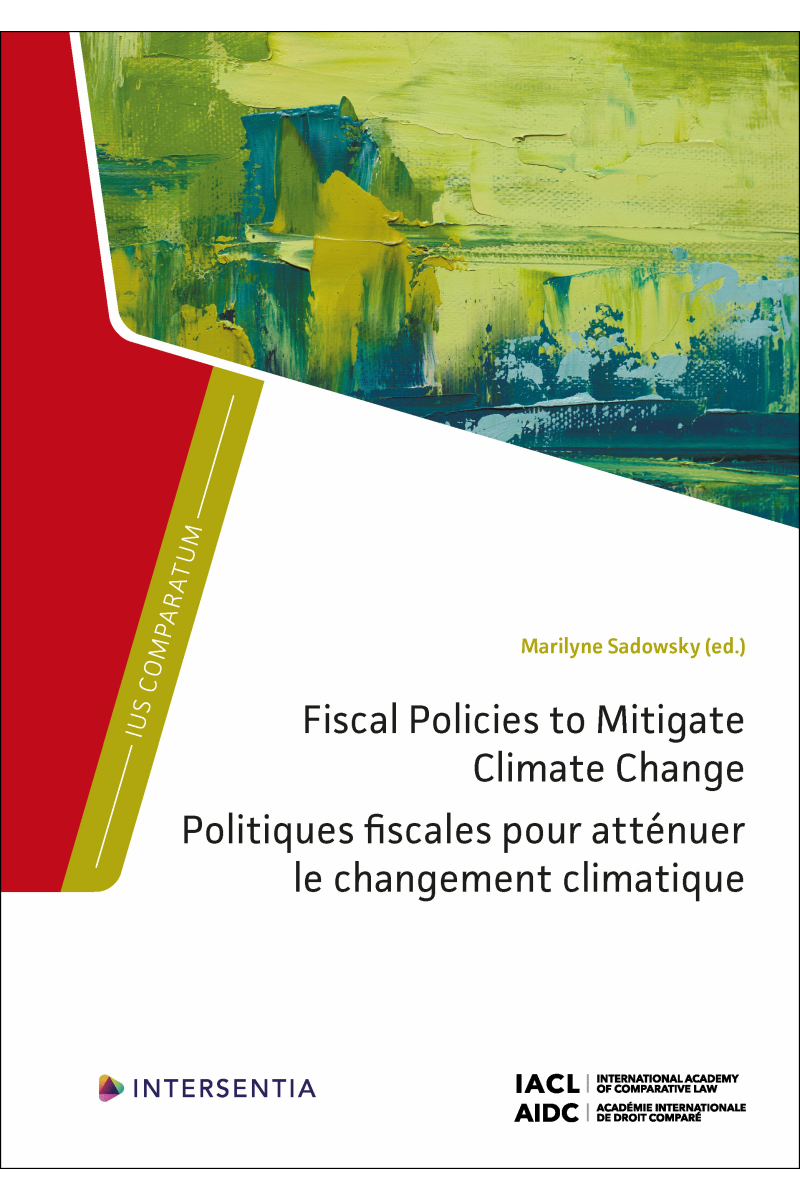 maestro
mastercard
visa
maestro
mastercard
visa

Fiscal Policies to Mitigate Climate Change

Taxation can play a fundamental role in climate change mitigation. While all countries have different approaches, they can act together and must do so urgently by prioritizing environmental objectives. In this respect, this is the first time that a book has brought together the climate fiscal policies of 30 countries, including Bhutan, which is currently the only country to be carbon neutral. Bhutan is implementing fiscal policies to maintain its carbon neutrality, while other countries are trying to implement policies to reduce greenhouse gas emissions. The large number of rapporteurs also reveals the interest in and topicality of the subject for all of the countries in the world, and the emergence of a new subject for some of them.
The analysis of this data reveals the difficulty of current fiscal policies to meet the requirements of climate change mitigation set by international and European agreements. There is a great deal of diversity, due to the difficulty of reconciling two distinct objectives - environmental protection and budget preservation - and implementing economic environmental responsibility. Each country is thus setting up a variety of instruments that respond to two different types of logic: compel and/or incentivise. This situation reveals certain weaknesses. These fiscal policies are not coherent and are based on a choice to use revenue for specific purposes, in addition to producing insufficient effects. In order to overcome this situation, it is necessary to reconsider these green tax policies by overcoming a variety of obstacles - political, legal, economic and social - in order to reinvent the existing system through national or global reforms. In this context, some proposals are made to rethink tomorrow's climate fiscal policies.
An Open Access chapter is available for this title. Open Access chapters can be found in the list of chapters below, under the book description
Marilyne Sadowsky has a PhD in international and European taxation (Sorbonne Law School, University Paris 1 Panthéon-Sorbonne), and achieved an honourable mention for the Mitchell B. Carroll Prize, International Fiscal Association. She is Associate Professor at the Sorbonne Law School, University Paris 1 Panthéon-Sorbonne, and Codirector of two Masters courses in tax law. She is a member for France of the Academic Committee at EATLP (European Association of Tax Law Professors). For the ILA (International Law Association), she is Coordinator of the White Paper on taxation for the ILA’s 150th anniversary in 2023. She was visiting Professor at the Boston College of Law, 2017, and is a Visiting Fellow at the Max Planck Institute, Munich, 2023.
| Type of product | Book |
|---|---|
| Format | Hardback |
| EAN / ISSN | 9781839703676 / 9781839704529 |
| Series name | Ius Comparatum |
| Weight | 1288 g |
| Status | Available |
| Number of pages | xvi + 666 p. |
| Access to exercice | No |
| Publisher | Intersentia |
| Language | English |
| Publication Date | Dec 8, 2023 |
| Available on Strada Belgique | No |
| Available on Strada Europe | No |
| Available on Strada Luxembourg | No |
Downloads
- Table of Contents and Front Matter
Marilyne Sadowsky - General Report: Fiscal Policies to Mitigate Climate Change
Marilyne Sadowsky - Rapport général: Politiques fiscales pour atténuer le changement climatique
Marilyne Sadowsky - Algeria
- Australia
- Austria
- Bhutan
- Brazil
- Canada
- China
- Czech Republic
- Denmark
Mark Ørberg - France
- Germany
- Hong Kong, China
- Hungary
Zoltan Nagy - India
- Israel
- Italy
- Japan
- Mexico
- New Zealand
- Pologne
- Romania
Marilena Ene - Russia
- South Africa
- South Korea
- Spain
- Switzerland
- United Kingdom
Alice Pirlot - United States
- Appendix: Questionnaire
Marilyne Sadowsky - Index
Marilyne Sadowsky